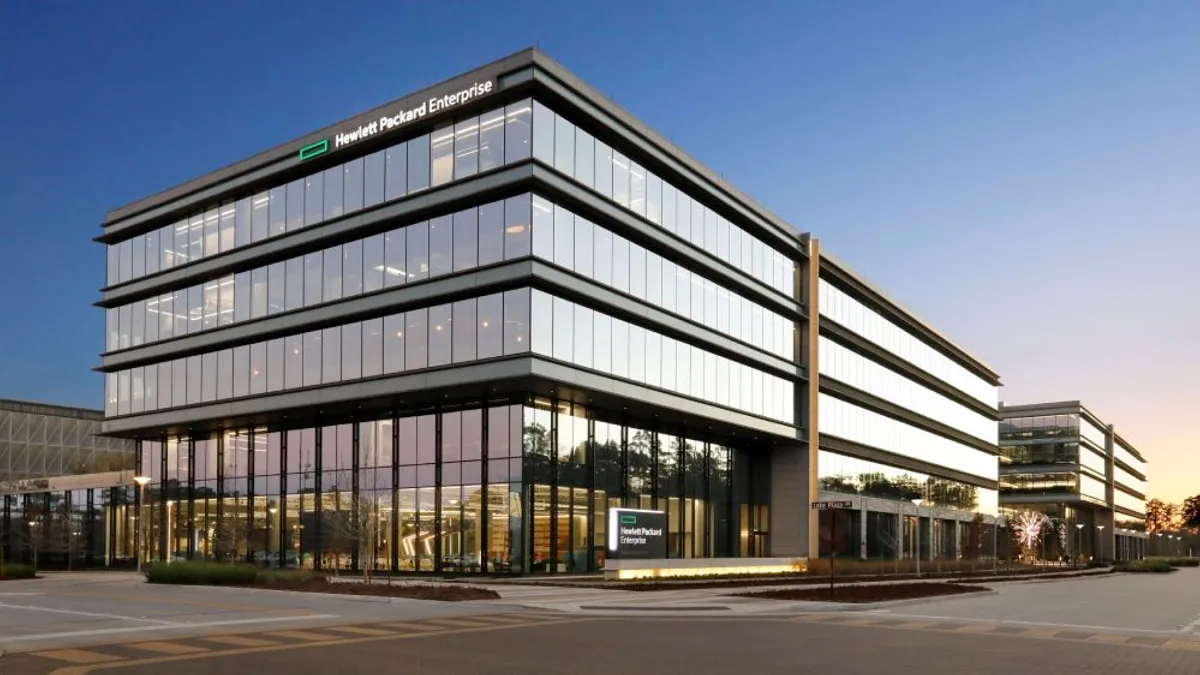Dive Brief:
-
Spring, Texas-based Hewlett Packard Enterprise is seeking to recoup as much as $4 billion from the former UK-based software firm Autonomy founder Mike Lynch and his ex-CFO after a London judge found the executives “fraudulently boosted” the company’s value before its 2011 sale to HP, Bloomberg reported Monday.
-
HP lawyers told a London court Monday that HPE lost more than $4 billion stemming from its acquisition of the firm as a result of the fraud perpetrated by Lynch, who faces a criminal trial in the U.S. after being extradited, and his former finance chief, Sushovan Hussain, according to a Reuters report.
-
The recent matter before the court stemmed form a civil case at the U.K. High Court that was filed in 2015 but wasn’t heard until 2019, an HPE spokesperson told CFO Dive. In January 2022, HPE won its fraud case over the Autonomy sale, BBC reported. Now the court will hear “arguments from both sides on what damages would be awarded to HPE,” the spokesperson said.
Dive Insight:
The case was believed to be one of the U.K.’s biggest civil fraud trials, according to the BBC. Due to further evidence that has emerged, lawyers for HPE asked for $4 billion in total losses to be paid back by Lynch and Hussain, down from $5 billion calculated at trial, according to Bloomberg.
The matter has also had repercussions in the U.S. In 2019, Hussain was sentenced to 60 months in prison after being convicted in the U.S. on 14 counts of wire fraud, one count of conspiracy and one count of securities fraud in connection with the case. Evidence at trial showed that for more than two years prior to the sale, Hussain used “sophisticated accounting methods” to falsely inflate the company’s revenues, using backdated contracts, “roundtrips, channel stuffing” and other forms of fraud to inflate revenues, according to a release from the U.S. Attorney’s Office of the Northern District of California.
The former CFO inflated Autonomy’s publicly-reported revenues by as much as 14.6% in 2009, 17.9% in 2010, 21.5% in the first quarter of 2011 and 12.4% in the second quarter of 2011, according to the AG. Before HPE was split off in 2015, its predecessor firm Hewlett-Packard in 2012 wrote down $8.8 billion of Autonomy’s value, after discovering it misrepresented its finances, CNN Business reported at the time, noting that the $11 billion acquisition had been “widely criticized” by analysts as too expensive for a company that never made more than $1 billion in annual revenue.
Improper revenue recognition has been highlighted as one of the most common types of fraud, CFO Dive previously reported. In addition to improper timing of revenue recognition, common fraudster tactics include recognition of fictitious revenue, channel stuffing, third-party transactions and fraudulent management estimates.
Separately, in December the company appointed Marie Myers, previously CFO of computer and electronics company Hewlett Packard, as its next finance chief. She played a key role as finance lead for HP’s separation in 2015, when the tech giant split into two distinct entities — with its corporate hardware and service businesses operating as HPE since the split, and HP taking its consumer computer and printer business, CFO Dive previously reported.











